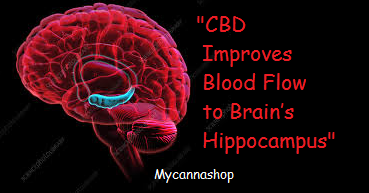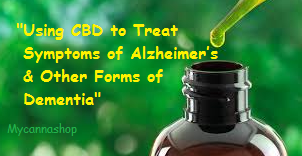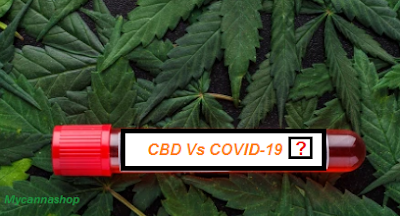Tags
- Cannabis Compounds
- Education & Reserch
- Hemp Industry
- Medical Conditions
- Nutrition
- Privacy Policy
Monday, 6 March 2023
CBD & Yoga "A Perfect Combination"
Monday, 9 January 2023
Arizona Supreme Court: "Maternal Use of Cannabis for Morning Sickness Doesn’t Constitute Child Neglect"
Friday, 5 August 2022
"The use of Medical Cannabis for Treating Cancer Related Symptoms in Oncology Patients"
Traditionally, cancer-related pain is mainly treated by opioid analgesics but a promising substitute for opioid-based medication is Medical Cannabis (MC) and Cannabinoid treatment for cancer-related pain is generally recognized as safe!
Despite the fact that there is a knowledge gap in the study of Cannabis, especially for treating cancer-related pain, a 2020 study showed that most cancer patients requested MC treatment from their oncologist.
The Adverse Effects (AEs) from cannabinoids for cancer treatment are generally well tolerated by the patients and categorized as mild to moderate and the most frequent AEs are memory impairment, drowsiness, nausea, vomiting and xerostomia (dry mouth).
This long-term study was conducted between January 2019 and September 2021 in Israel and pulished in Frontiers in Pain Research on 20 May 2022.
Tuesday, 25 January 2022
Endocannabinoid system: Essential and mysterious
Monday, 11 October 2021
"Neuroprotective Effects Of Cannabis" by Sensi Seed
-Antioxidative & anti-inflammatory properties
In recent years the evidence for the antioxidative and anti-inflammatory properties of various cannabinoids has become well-established, and our understanding of the role they play in modulating neurotransmission too has grown. Thus, serious consideration is now being given to their potential as neuroprotective agents. Cannabinoids have been shown to prevent neuronal death in acute neuronal injury, including Ischemic Stroke (IS) and Traumatic Brain Injury (TBI), as well as provide symptomatic relief in Multiple Sclerosis (MS), Huntington’s disease, and other chronic neurodegenerative diseases.
Wednesday, 29 September 2021
"The Begining of Western Medicine"
In 1803 Friedrich Sertuerner discovers an active ingredient in opium which if you dissolved in acid and then neutralizing it with ammonia result of this is... Morphine.
In 1827 E. Merck & Company of Darmstadt, begins the commercial manufacturing of morphine for healing purposes. It would become a dominant manufacturer of morphine, codeine and cocaine.
When we think of Bayer we think of aspirin, definitly not heroin.... but in 1895 Bayer Company of Elberfeld, finds that diluting morphine with acetyls produces a drug without the common morphine side effects and the name for this new compound... Heroin
And where you find acetyls to produce heroin? Where did the acetyls come from? Well, just like today they come from petrochemicals, and sudenly all this led us to a name.... "John D. Rockefeller" the oil baron...
Wednesday, 22 September 2021
How To Use CBD For Unbelievable Sleep
Whether you toss and turn all night, or lay there thinking about the problems of the day, it can be frustrating not getting great sleep, especially if you’ve tried all of the things that are supposed to help:
- Exercising during the day
- “Winding down” an hour before bed
- Not consuming caffeine beverages in the afternoon
- Going to bed at the same time every night, with the same routine
- Stop drinking alcohol
- Creating a super dark room with blackout shades
- Putting in ear plugs
- Turning on the blue-light filter on your phones or putting away your devices completely before bed-time
- And every vitamin, supplement, and herb out there!
Monday, 13 September 2021
"CANNABIS & SPIRITUALITY"
Wednesday, 4 August 2021
"Finally... is CBD Better Than Aspirin...?
And probably you are so quite sure about the safety of Aspirin, in point that you may be laugh...
So, lets take a closer look to Aspirin and to CBD and lets see what we will find out!!!
Aspirin, also known as acetylsalicylic acid (ASA), is a medication used to treat pain, fever, or inflammation. Specific inflammatory conditions which aspirin is used to treat include Kawasaki disease, pericarditis, and rheumatic fever.Aspirin given shortly after a heart attack decreases the risk of death. Aspirin is also used long-term to help prevent further heart attacks, ischaemic strokes, and blood clots in people at high risk. It may also decrease the risk of certain types of cancer, particularly colorectal cancer.
Saturday, 5 June 2021
"New compound from CBDA could be substitute for opioids & steroids"
Israeli researcher Raphael Mechoulam has announced the development of a process to modify and stabilize cannabidiolic acids (CBDA) that appear early in the cannabis plant’s growth, rendering compounds that have the potential for large-scale use.
The result is a semi-synthetic, fully stable, acid-based compound that could be useful in suppressing nausea from chemotherapy, and be a treatment for such afflictions as Inflammatory Bowel Disease (IBD) and Psoriasis.
Researchers say such compounds, which are more potent than CBD or THC – and which so far have shown no negative side effects – could replace steroids and opioids.
Politically correct for pharma
Mechoulam worked with American biotech startup EPM to develop the solution to stabilizing the acids through esterification, a simple chemical process. That could prove interesting to the pharmaceutical industry as the process turns out the acids in a consistent form that is patentable. Also, EPM CEO Reshef Swisa said the U.S. Food and Drug Administration has told the company the compound would not be treated as cannabis but as any other drug in development, thereby avoiding the stigma and legal limitations associated with marijuana.
Wednesday, 23 September 2020
"New Studies Reveals That Cannabis Helps PTSD Patients"
Previous research has shown that cannabis has the potential to reduce anxiety, or even prevent heightened anxiety in threatening situations. But up to this point, no studies had investigated this response in adults dealing with trauma - such as those with PTSD.
Two new studies point to the way that cannabinoids may help treat PTSD. One shows how cannabis can reduce activity in the amygdala (part of the brain associated with fear responses to threats) andd the other suggests that the plant’s cannabinoids could play a role in extinguishing traumatic memories. Both effects could be therapeutic for those suffering from PTSD - according to those studies.
Wednesday, 12 August 2020
"CBD Improves Blood Flow to Brain’s Hippocampus"
Cannabidiol (CBD) increases cerebral blood flow to areas of the brain associated with memory processing, specifically the hippocampus. The findings identify a potential mechanism for the use of CBD to treat disorders associated with altered memory processing, including Alzheimer’s disease, PTSD, and schizophrenia.
A single dose of cannabidiol (CBD) helped increase blood flow to the hippocampus, an important area of the brain associated with memory and emotion, finds a new study led by UCL researchers.
Researchers say the findings could be an important discovery for conditions which affect memory, such as Alzheimer’s disease and post-traumatic stress disorder (PTSD), and could help better target therapies.
In the study, published in the Journal of Psychopharmacology, researchers set out to investigate how CBD influences cerebral blood flow in different regions on the brain involved in memory processing.
Lead author, Dr Michael Bloomfield (UCL Psychiatry) said: “Cannabidiol is one of the main constituents of cannabis and is gaining interest for its therapeutic potential.
Tuesday, 11 August 2020
"Using CBD to Treat the Symptoms of Alzheimer’s & Other Forms of Dementia"
Worldwide, 50 million people are living with Alzheimer's and other dementias.
Alzheimer’s disease is a degenerative brain disease and the most common form of dementia.
Dementia its an overall term that describes a group of symptoms.
Dementia is a general term for loss of memory, language, problem-solving and other thinking abilities that are severe enough to interfere with daily life. Alzheimer's is the most common cause of dementia.
The dementia-related conditions that can be helped by CBD include: Alzheimer’s disease, Vascular Dementia, Dementia with Lewy bodies (DLB), Parkinson’s disease, Frontotemporal dementia and Huntington’s disease.
According to researchers at California’s Salk Institute, their 2017 study has found evidence that cannabinoids such as CBD could help remove dementia from, and increase connections between, brain cells. Those results were validated by other laboratories.
There are three ways CBD can work to improve health outcomes for persons with dementia: by reducing inflammation, by reducing oxygen buildup, and by working as a brain stimulant and neuroprotectant. From a user’s perspective, CBD may reduce stress and anxiety in the individual with dementia as well as reduce the decline of memory and other brain functions.
"Safety and efficacy of cannabidiol in children and adults with treatment resistant Lennox-Gastaut syndrome or Dravet syndrome"
Since 2014, patients with severe treatment-resistant epilepsies (TREs) have been receiving add-on cannabidiol (CBD) in an ongoing, expanded access program (EAP), which closely reflects clinical practice.
The Study...
Children and adults with LGS/DS taking stable doses of antiepileptic drugs (AEDs) at baseline were included from 25 EAP sites across the United States.
During the 4-week baseline period, parents/caregivers kept diaries of all countable seizure types. Patients received a pharmaceutical formulation of highly purified CBD in oral solution at 2-10 mg/kg/day, titrated until tolerability limit or a maximum dose of 25-50 mg/kg/day.
Friday, 7 August 2020
"CBD and Epilepsy"
Epilepsy is a common neurologic disorder, it is estimated that ∼50 million people are affected worldwide.
About one third of those patients are drug resistant, defined as failure to stop all seizures despite adequate trials of at least 2 appropriate medications.
There has been an enormous interest in developing antiepileptic drugs with novel mechanisms of action. This review discusses the evidence supporting the anticonvulsant properties of cannabis in humans, focusing on cannabidiol.
Friday, 31 July 2020
"CBD could help people quit cannabis bad habit"
A benchmark clinical trial published on 28/07/2020 shows that cannabidiol (CBD) could be a safe and effective treatment for problematic cannabis use.
Results from the first-ever randomised clinical trial of CBD for cannabis use disorder suggests that prescribed doses of the non-intoxicating constituent part of the cannabis plant could help people kick the habit.
In the MRC-funded trial, published in the Lancet Psychiatry, researchers administered doses of CBD or placebo to 82 volunteers who were motivated to quit using cannabis but had previously failed to do so. They measured the effects of the drug on levels of cannabis use both during a four-week treatment period and up to six months follow-up.
As this was the first clinical trial to assess CBD for reducing cannabis use, they tested three different doses of CBD in an adaptive design to find out which doses might be most effective.
- In the first stage of the trial, 48 volunteers received either placebo or CBD at doses of 200mg, 400mg or 800mg. The researchers found that the lowest dose of 200mg CBD was ineffective and so they dropped it from the trial.
- In the second stage of the trial, the researchers recruited an additional 34 volunteers to receive either placebo, 400mg or 800mg CBD. At the end of the trial, they found consistent evidence that CBD at 400mg or 800mg was more effective than placebo at reducing cannabis use.
Wednesday, 8 July 2020
"CBD and Schizophrenia Safety and Effectiveness"

Thursday, 2 July 2020
"Medical Cannabis Treatment in Autism: Analysis of Safety and Efficacy"
Friday, 26 June 2020
"CBD Vs COVID-19"
Friday, 12 June 2020
"CBD Oil for Peripheral Neuropathy"


















